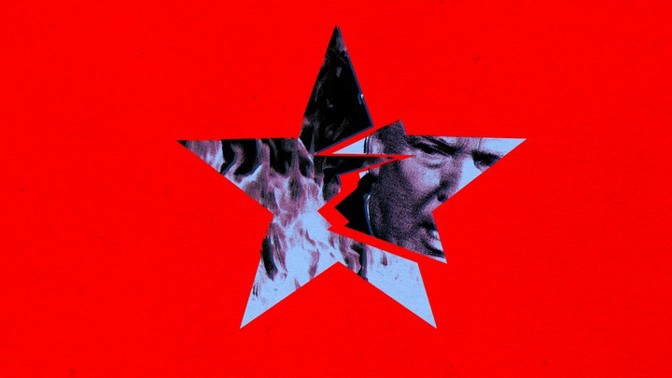Every weekday evening, our editors guide you through the biggest stories of the day, help you discover new ideas, and surprise you with moments of delight. Subscribe to get this delivered to your inbox.

This week, two high-profile incidents laid bare America’s racial contract. Both found accelerants in social media and provoked questions about its role in society.
In New York City, video of a white woman threatening to call the police on—she stressed—an “African American” man went viral. A social-media mob rebuked Amy Cooper, perhaps deterring those who might consider such behavior in the future, Zeynep Tufekci argues.
In Minnesota, the death of a black man named George Floyd at the hands of police prompted protests and looting. (An officer is now charged with third-degree murder and manslaughter in Floyd’s death.)
The president condemned the protests on Twitter, referring to protesters as “thugs” and adding: “When the looting starts, the shooting starts.” Twitter appended a warning label to the message, indicating that the tweet violated company policy, but acknowledging that it may be in the public interest to leave it accessible.
It was the latest development in an ongoing standoff with the president, whose posts Twitter began moderating this week. Trump responded with an executive order targeting social-media companies.
Below, our writers reflect on the president’s latest actions and the state of freedom of speech under his administration:
Twitter policy aside, Trump’s looting tweet violates his oath of office.
“The ostensible Twitter violation, which quickly made headlines, is less important than the constitutional problem with Trump’s public threat of lethal force,” Conor Friedersdorf argues.
David Frum argues: “The president has helped himself to money from the U.S. Treasury, using political power to direct public money to his personal businesses. It’s not as visual as a riot, but until 2017 it would have been regarded as equally criminal.”
He’s the nation’s chief Karen.
“President Trump calls the cops on those who challenge him, even if there’s no actual violation, to make life miserable for them.” David A. Graham argues.
(What does it mean to be a Karen? Read our primer.)
His definition of “free speech” is warped.
With his executive order, Trump is “attempting to bring social-media platforms into his authoritarian infrastructure—or otherwise censor them,” Adam Serwer argues.
The executive order is really a show for one person: Mark Zuckerberg.
“Trump is unlikely to repeal Section 230 or take any real action to curb the power of the major social-media companies. Instead, he wants to keep things just the way they are and make sure that the red-carpet treatment he has received so far, especially at Facebook, continues without impediment,” Zeynep Tufekci argues.

What to watch this weekend
Our critic David Sims tops off your viewing queue: Here’s his list of 30 unforgettable, singular films.
If you’re too antsy to sit down and watch an entire movie, Sophie Gilbert curated this wonderful list of 25 half-hour shows to watch now.
If none of those catches your eye, explore these three new releases, as reviewed by our Culture team:
-
The Vast of Night (Amazon Prime Video) is a “creepy, clever sci-fi thriller you need to watch.”
-
A four-part documentary on Jeffrey Epstein (Netflix) “strains to handle a subject who’s always out of reach.”
-
The Great (Hulu) “understands the theatrical and nearsighted politics of the current moment.”
Sign yourself up for The Daily here.
Source link
 Black America Breaking News for the African American Community
Black America Breaking News for the African American Community